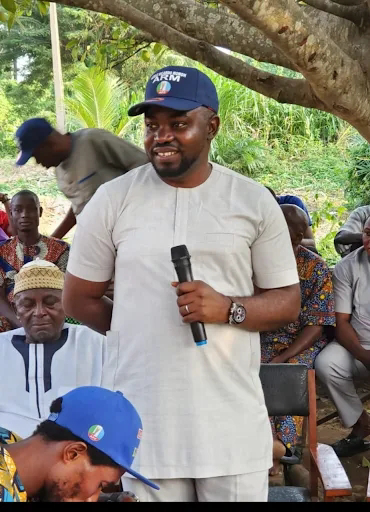In a landmark effort to address the longstanding challenges of the Niger Delta region and align its development with global sustainability goals, the United Nations (UN) and the Niger Delta Development Commission (NDDC) jointly organized a stakeholders’ dialogue. This summit, focused on the localization of the Sustainable Development Goals (SDGs) in the Niger Delta, brought together policymakers, community leaders, development experts, and environmental specialists to identify critical challenges, design solutions, and prioritize actionable strategies. The dialogue also aimed to harmonize the Niger Delta Regional Development Strategy with the UN’s Six Transitions, a framework designed to accelerate progress toward sustainable development through targeted interventions in areas such as energy, food systems, education, and environmental protection.
The Niger Delta, a region rich in natural resources yet plagued by environmental degradation, economic inequality, and social challenges, stands at a pivotal moment. The stakeholders’ dialogue represents a concerted effort to transform the region’s trajectory by leveraging its vast potential while addressing systemic issues that have hindered progress for decades. The summit emphasized a multi-faceted approach to development, encompassing economic empowerment, environmental restoration, social equity, and improved governance. By aligning local strategies with global frameworks, the UN and NDDC aim to create a roadmap for sustainable prosperity in the Niger Delta.
Identifying Challenges and Designing Solutions
Speaking at the summit, Dr. Patterson Ogon, the NDDC’s Director of Planning, Research, and Statistics, outlined the key objectives of the dialogue. He emphasized the importance of problem identification as the first step toward meaningful change. The Niger Delta faces a complex web of challenges, including environmental pollution from oil exploration, widespread poverty, inadequate infrastructure, and limited access to quality education and healthcare. These issues have been exacerbated by years of neglect, mismanagement, and conflict, making it imperative to adopt a structured and inclusive approach to development.
Dr. Ogon stressed that the dialogue was not merely about identifying problems but also about designing and prioritizing solutions that are tailored to the region’s unique needs. “We must move beyond rhetoric to actionable strategies that deliver tangible results,” he said, calling for a collaborative effort among stakeholders to ensure that development initiatives are both effective and sustainable. The summit provided a platform for open discussions, allowing participants to share insights, propose innovations, and commit to collective action.
One of the key areas of focus was the sustainable use of the Niger Delta’s abundant natural resources. Dr. Ogon highlighted the potential of renewable energy sources, such as wind and solar power, to address the region’s energy challenges. The Niger Delta, with its favorable climate and geography, is well-suited for renewable energy projects that could provide clean, affordable power to communities while reducing reliance on fossil fuels. By investing in renewable energy infrastructure, the region could not only meet its energy needs but also create jobs and stimulate economic growth.
Empowering Youth Through ICT and Economic Independence
Recognizing the pivotal role of the youth in driving economic transformation, Dr. Ogon called for the effective and efficient use of Information and Communication Technology (ICT) to empower young people in the Niger Delta. The region has a large and vibrant youth population, many of whom are tech-savvy and eager to contribute to economic development. However, limited access to digital infrastructure, training, and opportunities has hindered their ability to fully harness the potential of ICT.
By investing in digital literacy programs, broadband connectivity, and innovation hubs, the NDDC and its partners can equip Niger Delta youths with the skills and tools needed to achieve economic independence. For example, ICT can enable young entrepreneurs to start online businesses, access global markets, and participate in the digital economy. It can also facilitate remote learning, allowing students in rural areas to access quality education and training programs. Dr. Ogon emphasized that empowering the youth through ICT is not just a matter of economic necessity but also a strategy for fostering social stability and reducing youth restiveness in the region.
Transforming Education and Agriculture
Education emerged as another critical focus area during the dialogue. Dr. Ogon advocated for a synergy among major stakeholders—government agencies, educational institutions, private sector partners, and community organizations—to ensure that quality education is accessible to all Niger Deltans. Despite the region’s wealth of natural resources, educational outcomes have lagged due to underfunded schools, inadequate infrastructure, and a lack of qualified teachers. Addressing these challenges requires a coordinated effort to improve school facilities, train educators, and develop curricula that are relevant to the needs of the modern economy.
Dr. Ogon also underscored the importance of agriculture as a pathway to economic self-sufficiency. The Niger Delta’s fertile lands and favorable climate make it an ideal region for large-scale farming and agro-processing. However, agricultural productivity has been hampered by outdated farming practices, limited access to credit, and environmental degradation caused by oil pollution. To address these issues, Dr. Ogon urged Niger Deltans to take charge of growing their own food, leveraging the region’s agricultural potential to achieve food security and reduce dependence on imports.
By promoting modern farming techniques, such as precision agriculture and mechanization, the NDDC aims to transform the agricultural sector into a driver of economic growth. Partnerships with international organizations and private sector players could facilitate the transfer of technology and expertise, enabling farmers to increase yields and access new markets. Additionally, agro-processing industries could create jobs and add value to local produce, further boosting the region’s economy.
The Niger Delta Regional Development Strategy
Mr. Stephen Onerhime, a consultant for the Niger Delta Regional Development Strategy, provided a detailed overview of the comprehensive plan designed to guide the region’s development. The strategy is built on five key pillars: economic development, infrastructural development, social development, environmental sustainability, and governance. Each pillar addresses specific challenges and opportunities, ensuring a holistic approach to transforming the Niger Delta.
Economic Development: The strategy prioritizes diversification of the Niger Delta’s economy, which has long been dependent on oil and gas. By promoting sectors such as agriculture, tourism, and technology, the region can create new sources of revenue and reduce its vulnerability to fluctuations in global oil prices. Initiatives such as microfinance programs, vocational training, and support for small and medium enterprises (SMEs) are central to this pillar.
Infrastructural Development: Inadequate infrastructure, including poor roads, unreliable electricity, and limited access to clean water, has been a major barrier to development in the Niger Delta. The strategy includes plans to upgrade transportation networks, expand access to electricity, and improve water and sanitation systems. These investments will not only improve the quality of life but also attract private sector investment to the region.
Social Development: Addressing social challenges, such as poverty, unemployment, and inequality, is a key focus of the strategy. Programs aimed at improving healthcare, education, and gender equity will ensure that all Niger Deltans have the opportunity to thrive. Special attention will be given to vulnerable groups, including women, youth, and persons with disabilities.
Environmental Sustainability: Decades of oil exploration have left the Niger Delta with severe environmental challenges, including oil spills, deforestation, and loss of biodiversity. The strategy emphasizes environmental restoration, sustainable resource management, and climate resilience. Initiatives such as mangrove restoration and pollution remediation are critical components of this pillar.
Governance, Security, and Financing: Effective governance and institutional reforms are essential for the success of the development strategy. The plan includes measures to strengthen transparency, accountability, and public participation in decision-making processes. Additionally, efforts to improve security and maintain law and order will create a stable environment for investment and development. Financing mechanisms, including public-private partnerships and international funding, will ensure that the strategy is adequately resourced.
Mr. Onerhime highlighted the advantages of the Niger Delta Regional Development Strategy, including its harmonized approach to development. By providing a standardized framework, the strategy ensures that all stakeholders are aligned toward common goals. It also includes a robust monitoring and evaluation mechanism to track the progress and impact of projects, ensuring accountability and transparency.
Environmental Restoration: The Role of HYPREP
A significant portion of the dialogue focused on environmental restoration, particularly the work of the Hydrocarbon Pollution Remediation Project (HYPREP). Professor Nenibarini Zabbey, the Projects Coordinator for HYPREP, represented by Mr. Agunyi Damian Paul, provided an update on the agency’s efforts to address environmental damage caused by oil pollution. HYPREP has been implementing remedial activities at 65 sites identified by the United Nations Environment Programme (UNEP), focusing on soil and groundwater treatment.
The methodologies adopted by HYPREP include shoreline cleanup, artisanal refinery treatment, and the restoration of mangroves, which are critical to the region’s ecosystem. Mangroves serve as natural barriers against coastal erosion, support biodiversity, and provide livelihoods for local communities through fishing and other activities. However, oil pollution has decimated mangrove forests in the Niger Delta, threatening both the environment and the livelihoods of those who depend on it.
Professor Zabbey announced that HYPREP has launched the world’s largest initiative to restore mangroves damaged by oil pollution. This ambitious project involves planting and monitoring mangroves to ensure their growth and maturity. The initiative has far-reaching implications for the Niger Delta, as healthy mangrove ecosystems can protect shorelines, improve food security, mitigate the impacts of floods, and contribute to climate change adaptation. By sequestering carbon, mangroves also play a crucial role in combating climate change, making this initiative a model for environmental restoration worldwide.
Aligning with the UN’s Six Transitions
The stakeholders’ dialogue emphasized the importance of aligning the Niger Delta Regional Development Strategy with the UN’s Six Transitions, a framework designed to accelerate progress toward the SDGs. The Six Transitions focus on key areas: food systems, energy access and affordability, digital connectivity, education, jobs and social protection, and climate change, biodiversity loss, and pollution. By integrating these priorities into its development plans, the Niger Delta can address local challenges while contributing to global sustainability goals.
For example, the focus on renewable energy aligns with the UN’s transition to energy access and affordability. By harnessing wind and solar power, the Niger Delta can provide clean energy to underserved communities, reducing energy poverty and promoting sustainable development. Similarly, the emphasis on ICT and youth empowerment supports the transition to digital connectivity, ensuring that the region’s young people are equipped to participate in the digital economy.
In the area of food systems, the call to grow local food and modernize agriculture aligns with the UN’s goal of achieving food security and sustainable agriculture. By investing in agro-processing and modern farming techniques, the Niger Delta can reduce its reliance on food imports and create a resilient food system. The focus on education also supports the UN’s transition to quality education, ensuring that all Niger Deltans have access to learning opportunities that prepare them for the future.
The environmental restoration efforts led by HYPREP align with the UN’s transition to addressing climate change, biodiversity loss, and pollution. By restoring mangroves and remediating polluted sites, the Niger Delta is taking concrete steps to mitigate the impacts of climate change and protect its ecosystems. These efforts also contribute to social protection by safeguarding the livelihoods of communities that depend on natural resources.
Challenges and Opportunities
While the stakeholders’ dialogue and the Niger Delta Regional Development Strategy represent a bold vision for the region’s future, several challenges must be addressed to ensure success. One key challenge is the need for sustained funding and resources. Development initiatives in the Niger Delta have often been hampered by inadequate financing, and the ambitious goals outlined in the strategy will require significant investment from both public and private sources.
Another challenge is the need for effective coordination among stakeholders. The Niger Delta is home to a diverse array of communities, organizations, and government agencies, each with its own priorities and perspectives. Ensuring that these groups work together toward common goals will require strong leadership, clear communication, and a commitment to inclusivity.
Security remains a significant concern in the Niger Delta, where issues such as oil theft, vandalism, and militancy have disrupted development efforts. Addressing these challenges will require a comprehensive approach that combines improved security measures with economic and social interventions to address the root causes of unrest.
Despite these challenges, the opportunities are immense. The Niger Delta’s vast natural resources, youthful population, and strategic location make it a region with enormous potential. By leveraging partnerships with organizations like the UN, the NDDC can access expertise, funding, and global best practices to drive development. The focus on renewable energy, ICT, agriculture, and environmental restoration positions the region to become a model for sustainable development in Africa and beyond.
Conclusion
The stakeholders’ dialogue organized by the UN and NDDC marks a turning point in the Niger Delta’s journey toward sustainable development. By identifying challenges, designing solutions, and aligning local strategies with global frameworks like the UN’s Six Transitions, the region is poised to overcome its longstanding challenges and unlock its vast potential. The Niger Delta Regional Development Strategy, with its focus on economic, infrastructural, social, and environmental development, provides a comprehensive roadmap for progress. Meanwhile, initiatives like HYPREP’s mangrove restoration project demonstrate the region’s commitment to environmental sustainability and climate resilience.
As the Niger Delta moves forward, the collaboration between the NDDC, the UN, and other stakeholders will be critical to ensuring that the region’s development is inclusive, sustainable, and impactful. By empowering its youth, modernizing its agriculture, harnessing renewable energy, and restoring its environment, the Niger Delta can become a beacon of hope and progress, not only for Nigeria but for the African continent as a whole. This dialogue is a testament to the power of collective action and shared vision in transforming one of the world’s most complex and promising regions.







